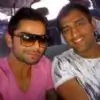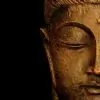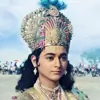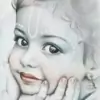Originally posted by: _Sanjana23_
A) Dritharastra was the legal, rightful first heir to the throne so rightfully the throne SHOULD have been passed on to Duryodhan regardless of his father's shortcomings? How far do you all agree?
Ans. No Duryodhan was never the legal heir of Hastinapur regardless of his father's blindness or his younger age than Yudhishtir. Because having royal blood alone is insufficient for the accession to the throne. A ruler had to prove himself as a worthy king and it was publicly established that Yudhishtir was an abler ruler. This norm was started by Bharat when he found his own sons unworthy of being trusted with the crown.
B)Duryodhan was treated unfairly for very long by the Pandavas and had a close enemity with Bhim when they could have been each others strength so is Duryodhan alone to blame?
Ans. You are right when you say that Duryodhan alone can't be blamed. It is said that Shakuni never forgave Bhishma for getting Gandhari married to the blind Dhritarashtra. He wanted her to be married to Pandu so that Gandhari could be the Empress of India. So he swore that he would destroy Bhishma's clan by poisoning the minds of its youth. Shakuni trained Duryodhan to believe that he is the righfull heir to the throne and Pandavas would snatch his right, just like their father snatched his father's right. He spawned hatred for the Pandavas in Duryodhan's mind and didn't stop till the Kuru clan was destroyed in the Kurukshetra.
C)Gandhari knew her brother's bad influence would cause destruction to her family. So why did she not intervene? Is it not fair to say that Duryodhan was failed as a child by his parents for correct upbringing?
Ans. Actually Gandhari tried more than once to extricate Duryodhan from Shakuni's influence. But Shakuni, the cunning politician he was, convinced Dhritarashtra that after he's gone, nobody will care about Duryodhan's interests. He managed to make him believe that both Vidur and Bhishma were inclined towards the Pandavas, and that Shakuni himself was the sole defender of Duryodhan's interest. Fearing about his son's future, Dhritarashtra requested Shakuni to remain in Hastinapur and even forbade Gandhari from opposing him.
D)Why were Pandavas as children always favoured especially with Pitaamah Bhishma? Did that occur to anyone that the difference would cause hatred between the two?
Ans. This is a misbelief. Bhishma always loved every member of his clan equally. If you read the end of Bhishma Parva when Karna goes to seek Bhishma's permission to enter the war, Bhishma says this to him. Vidur gave extra attention Yudhishtir because he wanted to hone his skills as a future ruler as well as due to the fact that he was fatherless. The only person who could be blamed of partiality was Dronacharya. This is reflected by the fact that Drona gave Pandavas and Kauravas, separately, the task of paying his Gurudakshina. If he had been impartial, he would have ordered his 105 students to pay the Gurudakshina.And finally E) Draupadi's taunts were distasteful, evil and malicious. Was it fair that he was treated in such a manner? Is there not a line to be drawn were such mockery should not be allowed? Is Duryodhan's anger not justified?
Ans. Whatever Draupadi did was completely wrong, but unfortunately that can never be a justification for Duryodhan's crimes. He wanted revenge, fine. There were worthier ways. According to the Vedas if a married Kshatrani offends another Kshatriya, and that Kshatriya seeks revenge, he must defeat that Kshatrani's husband in a duel and enslave him. (This is what Karna suggested to him, initially. Though later on Karna fully enjoyed and actively participated in the infamous Vastraharan). Duryodhan was a Adharmi and there can be no doubt in that. But there are several instances which shows his qualities as well. He was generous to the poor, he regularly voiced against the then prevalent caste-discrimination, which was not considered unjust even by the noblest of those times. He was a loyal friend as well. But as it is said that its our choices, more than our abilities which truly define us. While Duryodhan chose Shakuni and Karna, Pandavas chose Krishna and that was enough to decide who's Dharmic and who's Adharmi.😃






























